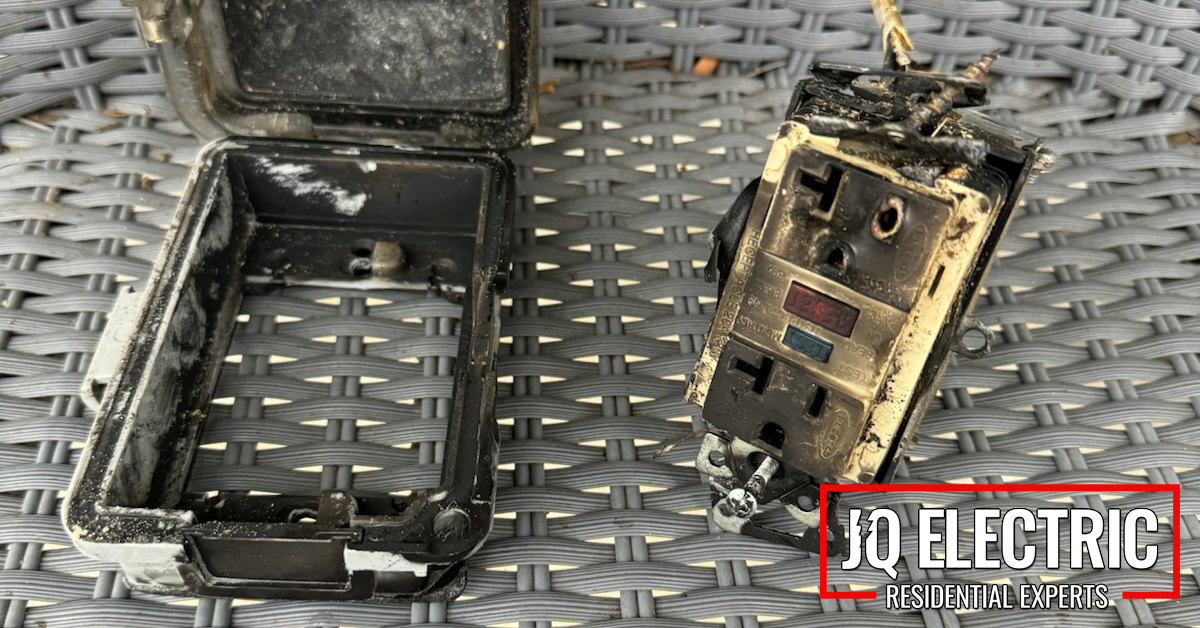
Do you have a warm electrical outlet? What does it mean, and how do you handle it? Electricity is one of those things we often take for granted. We flip a switch or plug in a device and expect everything to work smoothly. But what happens when you notice something unusual, like a warm electrical outlet? Should you be concerned? Let’s explore what it means and what steps you should take to ensure your home’s safety.
What Causes a Warm Electrical Outlet?
Several factors can cause a warm outlet, and it’s not something to ignore. Electricity generates heat as it flows through your home’s wiring. Normally, outlets shouldn’t feel warm to the touch, but certain issues can cause an increase in temperature.
Here are a few common causes of a warm electrical outlet:
- Overloaded Circuits: Plugging too many devices into one outlet can cause it to overheat. Each electrical outlet has a limit on how much current it can safely handle. Exceeding this limit leads to heat build-up.
- Loose or Damaged Wires: Over time, wires inside the outlet can loosen or become damaged. Loose connections generate heat as electricity tries to flow through an improper path.
- Old or Worn-Out Outlets: Just like anything else, outlets wear out with age. An older outlet may struggle to handle the electrical load it once managed with ease.
- Faulty Devices: Sometimes, it’s not the outlet but the device plugged into it. A faulty appliance can draw more current than it should, causing the outlet to heat up.
Why You Should Take a Warm Electrical Outlet Seriously
You might be tempted to brush off a warm outlet as no big deal, but this could be a serious mistake. A warm outlet is often a sign that something isn’t right in your electrical system, and it could pose a fire hazard.
Electrical fires are one of the most common causes of house fires, and they can spread quickly if left unchecked. The National Fire Protection Association (NFPA) warns that electrical problems are responsible for thousands of home fires every year. When an outlet is warm to the touch, it’s often a sign that heat is building up behind the walls, increasing the risk of fire.
What Should You Do If You Notice a Warm Outlet?
Suppose you discover a warm outlet in your home. In that case, you can take a few immediate steps to minimize any potential danger.
- Unplug Devices: First and foremost, unplug any devices connected to the outlet. This step will help reduce the electrical load and prevent further overheating.
- Don’t Use the Outlet: Avoid using the hot outlet until you have it inspected by a professional. Continuing to use it could make the problem worse.
- Call a Professional Electrician: You need a trusted electrician, like JQ Electric, to step in. Attempting to fix electrical issues on your own can be risky, especially if you’re not familiar with electrical work.
Preventing Electrical Problems
No one likes to deal with electrical issues but taking a few preventative steps can help reduce the risk of problems down the line.
- Don’t Overload Outlets: Be mindful of how many devices you plug into each outlet. If you need more outlets, consider having a licensed electrician install additional ones.
- Check for Loose Outlets: If your outlet feels loose when you plug something in, that could be a sign of worn wiring. Have it checked by a professional.
- Replace Old Appliances: Old appliances can draw more current than newer, energy-efficient models. Replacing them can help prevent overloads.
- Schedule Regular Electrical Inspections: Having an electrician inspect your home’s wiring every few years can catch potential issues before they become major problems.
When in Doubt, Give JQ A Shout
Your home’s electrical system is nothing to take lightly. If you ever notice a warm outlet or other electrical issues, don’t hesitate to call a professional. JQ Electric’s dedication to customer service and their expertise in the Crofton area make them the perfect choice for all your electrical needs. Remember, it’s better to be safe than sorry when it comes to electrical issues. Let JQ Electric give you peace of mind and keep your home safe.
